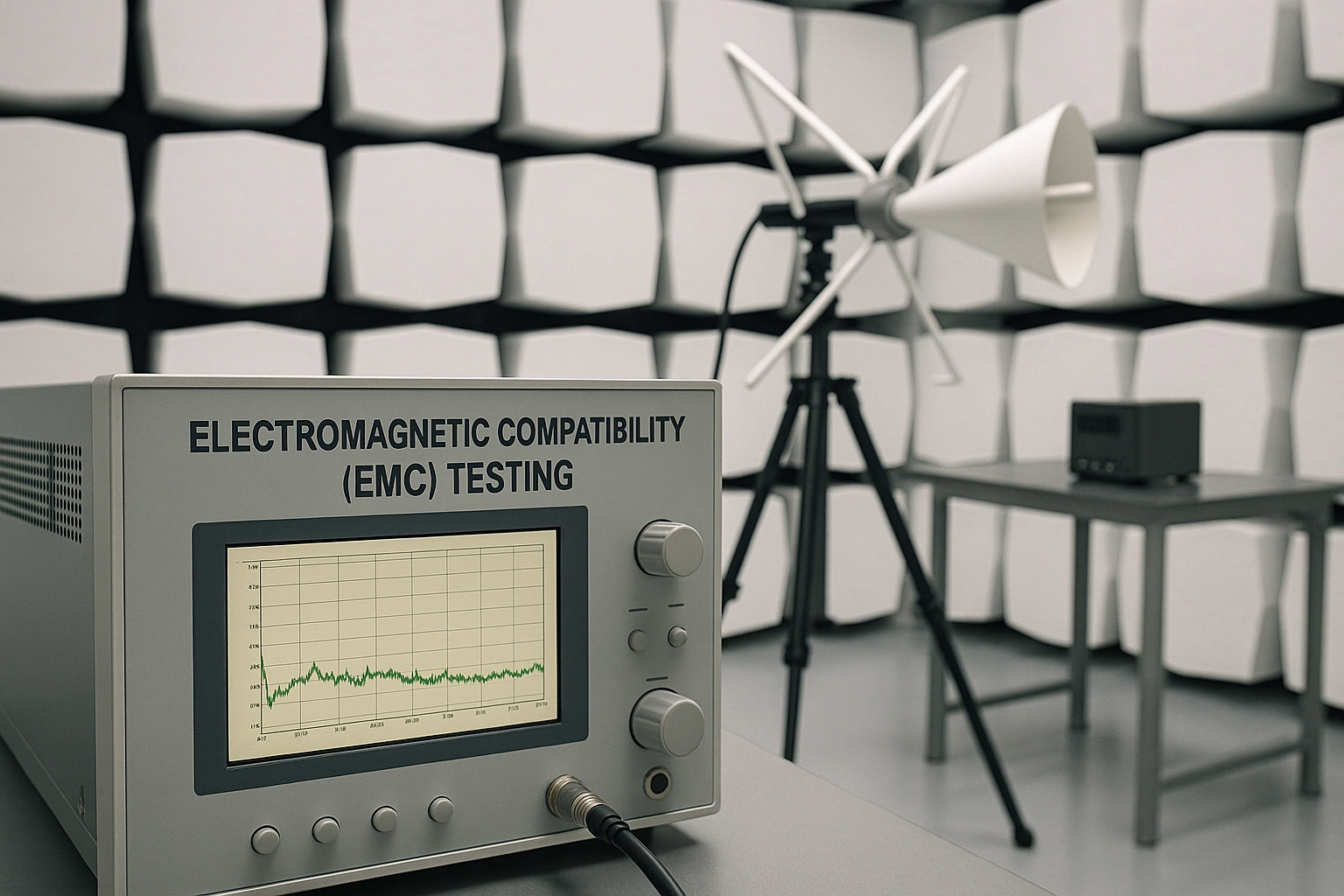SAE J2968 EMC Test for Electric Vehicle Supply Equipment
The SAE J2968 standard specifies the procedures and requirements for electromagnetic compatibility (EMC) testing of electric vehicle supply equipment (EVSE). This service ensures that EVSE devices operate without causing harmful interference to other electronic systems and are immune to such interference. The test protocol is crucial in meeting regulatory requirements, ensuring product reliability, and enhancing customer satisfaction.
The scope of SAE J2968 testing includes the evaluation of both conducted emissions and radiated emissions. Conducted emissions are typically measured using a 13 m cable connected between the power supply and the EVSE. Radiated emissions are tested at specific frequencies to ensure compliance with international standards like CISPR, which is critical for preventing interference in nearby wireless communications.
EVSE devices must pass both conducted and radiated emission tests under normal operating conditions as defined by SAE J2968. This includes various scenarios such as charging, discharging, and standby modes. The standard also requires testing of the impact of lightning surges on EVSE systems to ensure robustness against transient events.
Compliance with SAE J2968 is essential for manufacturers aiming to enter competitive markets that have stringent EMC regulations. By ensuring compliance early in the development process, manufacturers can avoid costly redesigns and retests later in production. This service not only facilitates regulatory compliance but also enhances product quality by identifying potential issues before mass production.
Testing conducted according to SAE J2968 provides a comprehensive assessment of an EVSE’s electromagnetic environment, ensuring that it operates safely and efficiently within its intended use. The test results are critical for stakeholders involved in the design, development, and certification processes of electric vehicles and their charging infrastructure.
The process involves detailed preparation and execution steps. Specimen preparation includes connecting the device to a power supply, setting up the required measurement equipment, and ensuring all external interfaces are properly connected. The test setup must replicate real-world conditions as closely as possible to provide meaningful results.
Instrumentation used in this testing typically includes spectrum analyzers, network analyzers, and power supplies capable of simulating various operational scenarios. Data acquisition systems capture the necessary parameters for analysis. Compliance is determined by comparing measured values against specified limits defined in SAE J2968.
The significance of SAE J2968 testing extends beyond mere compliance; it also plays a pivotal role in enhancing product reliability and performance. By identifying potential issues early, manufacturers can improve the overall quality of their products, leading to increased customer satisfaction and loyalty. This service supports sustainable development by promoting the use of reliable EVSE equipment that contributes to a safer and more efficient electric vehicle ecosystem.
In summary, SAE J2968 EMC testing is essential for ensuring the safe and effective operation of electric vehicle supply equipment in diverse environments. It provides a rigorous evaluation framework that aligns with international standards, supporting both regulatory compliance and product quality.
Benefits
- Enhanced Product Quality: Identifying and rectifying issues early in the development process improves overall product reliability.
- Regulatory Compliance: Ensuring that products meet international standards like SAE J2968 helps avoid costly rejections during certification processes.
- Customer Satisfaction: Reliable, interference-free EVSE enhances user experience and satisfaction.
- Safety Assurance: By preventing harmful emissions and transient events, the service contributes to a safer environment for users.





